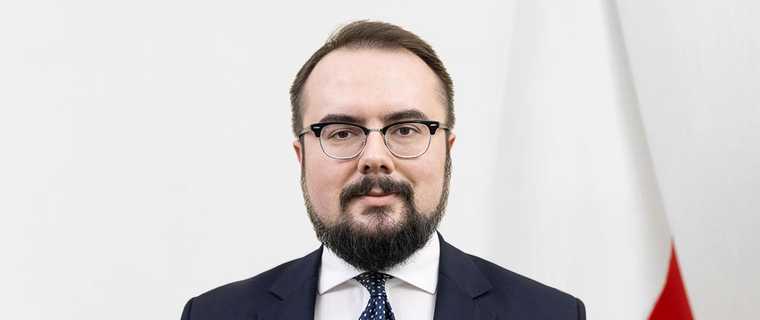By: V4 Agency
“There are many countries in dire circumstances, which requires that this budget is implemented swiftly,” Poland’s deputy foreign minister told V4NA in an interview. The timing of the debate could not be worse, but Poland cannot agree to a solution that bases tough measures on vague concepts, he said.
Statements by EU leaders concerning the Polish-Hungarian veto of the budget have become increasingly drastic, with some suggesting, as an option, that the EU is ready to bypass the two countries and incorporate the rule of law mechanism into its multiannual financial framework.
“In the end, this would break up the whole European Union,” Polish Deputy Foreign Minister Pawel Jablonski told V4NA in a recent interview. There are some countries that are ready to push for a similar action, but most member states firmly reject the option, he said. “Most EU countries seek understanding, seek compromise, and provided that this compromise is in line with the treaties and guarantees our rights as member states, I believe nothing can be excluded,” he said.
“The timing couldn’t be worse,” he stated. We need to be united in the face of the pandemic and many countries are in dire need of implementing the budget swiftly, Jablonski said. He added that Poland wants nothing else but to support this, but it cannot agree to a solution that would effectively allow a political decision to block funds at a later stage for alleged breaches of certain European values that have never been properly defined.
“Strict measures cannot be based on ambiguity,” Jablonski said. He pointed out that multiple definitions of the rule of law exist in Europe and the principle itself is formulated differently in every member state, in accordance with their traditions, identity and constitution. “If we cannot agree on one definition, it’s better to leave it to individual member states to define it in accordance with their legal systems,” he said. If there are competences that are not conferred upon the Union by the member states in the treaties, then these competences solely belong to the member states, he added.
Pawel Jablonski noted that many regard the rule of law as an instrument of punishment, adding however, that this needs to be clarified. “The proposed regulation that is allegedly protecting the rule of law is in fact a tool to punish member states”. He stressed that it is not in the interest of some countries to clarify the uncertainties surrounding the concept.
“There are member states where judges are being appointed by politicians, there are member states where judges are appointed by other judges – with some political involvement – there are countries without a constitutional court, and some with it, so there are big differences among member states in Europe”, the politician said. He added that we could have continuous debates, but if we proposed a regulation that judges, for instance, should never be appointed by politicians, then “I don’t think Germany, for example, would agree to it. There, this is the essence of the judicial appointment system. I’m not saying this is bad, I’m saying they have a different tradition,” he underlined.
Jablonski pointed out that the European Commission has never had a problem with this model, so he is baffled by the attacks against Poland and Hungary, where the appointment of judges is much less politicised. “Here is the problem: the double standard that is being applied to different member states,” he said.
V4NA asked the deputy foreign minister whether the rule of law dispute can be settled later. “This is the only moment in the process when we can stop” the adoption of the mechanism, he replied. He also pointed out that if the budget was adopted, the new mechanism could be approved by a simple majority. “It we debate the budget and the recovery fund, we can’t debate it until we know what the rules are going to be” Jablonski said, adding that legal certainty is a key element of the rule of law, and this lack of certainty is, in itself, a breach of the rule of law.
The politician stressed that several powerful stakeholders are involved in the dispute, who are not necessarily government actors but organisations promoting the liberal agenda and we don’t know exactly who they are. He pointed out that, for example, George Soros also declared very openly that he supported these measures. “It should not be any surprise that this is a subject of public debate” the deputy foreign minister noted, adding that “the public and the nations of Europe have the right to know who is behind these changes, because it is a crucial element of democracy. Transparency behind every action should be a key element of any democratic society.”
Pawel Jablonski said the situation is made more complicated by the fact that the debate is taking place amidst a global pandemic. He added, however, that Poland was doing rather well and can expect a significant economic rebound in the coming months, according to forecasts. “It’s not a matter of luck, but strong economic foundations we’ve established over the last couple of years,” he said. He added that the Polish government was also waiting for the arrival of a safe and effective vaccine, which also gets the green light from member states and the European Medicines Agency. “We trust that the vaccine will only be approved if all side effects are excluded,” Jablonski noted, adding that the administration of the vaccine would, of course, be voluntary and free.

